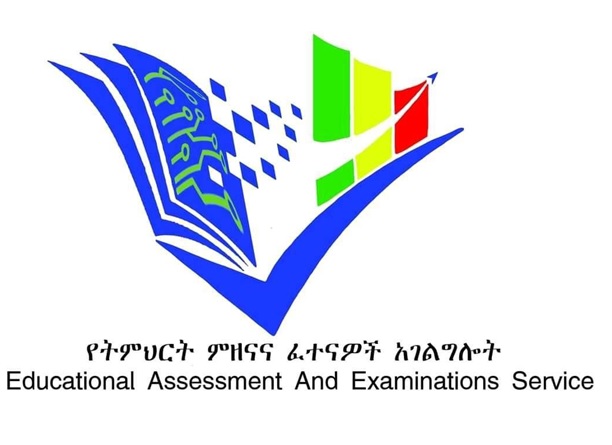
According to the United Nations’ 2030 Sustainable Development Goals (SDGs), ensuring inclusive and equitable quality education and promoting lifelong learning opportunities for all is a top priority to improve the livelihoods of global society. Access to basic education throughout one’s school life is essential for creating competent generations that are responsible, industrious, and ethical. Parents worldwide are increasingly striving to provide better education for their children by investing more in their education.
In recent news, the Educational Assessment and Examinations Service has announced efforts to improve the educational assessment and examination systems from the grassroots level. The service recognizes that improving the examination process, starting from the lower grades, greatly contributes to alleviating the stressful situation of national exams, such as the grade 12 university entrance exam.
The service acknowledges that the current high failure rate of students in the grade 12 exam is mainly due to a lack of proper examination assessment processes in the lower grades. This situation hampers students’ understanding of what they should learn at their respective levels, leading to lower performance in the final stage of the grade 12 examination.
To address this issue, the service will focus on enabling students to pass through a competitive assessment process. They will undertake further work to strengthen the grade 8 examinations and other school-level assessment systems. By improving the examinations process starting from the lower grades, the service aims to create a more effective and fair assessment system that supports students’ overall educational journey.
These efforts align with the goal of providing inclusive and quality education for all, ensuring that students have the necessary tools and opportunities to succeed academically and contribute positively to society.
Regarding this matter, the Policy Studies Institute (PSI) recently emphasized the importance for the government to focus on enhancing the quality of education, in addition to expanding schools, as it plays a crucial role in producing skilled and competitive citizens.
According to the institute, concerted efforts should be made by all stakeholders in the education sector to ensure the maintenance of quality education in the country. This is vital for nurturing a better generation who values and understands the importance of education. The government is expected to prioritize quality education and give due attention to the education sector.
During a validation workshop organized by PSI in collaboration with the African Economic Research Consortium (AERC), PSI Director General Prof. Beyene Petros, highlighted the institution’s emphasis on the need to work on the education sector as a viable solution to overcome challenges. He emphasized that while the government is working on expanding the education sector, equal attention must be given to ensuring the provision of quality education.
In a presentation titled “Investment in Education and the Labor Market Mismatch in Ethiopia,” Jemal Mohammed, the Lead Researcher at PSI, emphasized the paramount importance of investing in human capital in driving the country’s economy. The government has made significant investments in the education sector, aggressively expanding schools, colleges, universities, TVET (Technical and Vocational Education and Training) institutions, and other training centers. These efforts have had a significant impact on producing skilled labor, thereby driving economic growth.
Jemal further highlighted the significance of coordination between industries and training institutions, as it is crucial for producing effective and efficient practitioners. He emphasized the need to shift the focus of education investment from quantity to quality. Strengthening coordination between industries and training institutions is essential in promoting structural transformation from agriculture to industry.
In another presentation titled “The Economic Wide Impact of Harnessing Human Capital Development in Ethiopia,” Alekaw Kebede, Macro-economy Policy Lead Researcher at PSI, emphasized the importance of appropriate policy measures to stimulate the economy and allocate available resources effectively. Policies aimed at sustaining growth and optimizing the allocation of resources, such as labor, in developing countries should be evaluated considering future developments.
Alekaw noted that it is crucial to align employment and education policies with the demands of the economy and monitor their effectiveness. Governments should be encouraged to continue investing more in education. Professor Abebe Shimeles, an Economic Advisor at UNECA (United Nations Economic Commission for Africa) and Cape Town University, highlighted the significant improvement in access to education across the country and the continent, emphasizing its potential to make a positive difference.
During the announcement of the 2015 E.C university entrance exam results, Minister of Education Prof. Birhanu Nega highlighted the concerning issue of cheating on exams, which has been improving year after year. Despite this improvement, the number of students scoring above 50% remains similar to previous years.
Out of the 845,099 students who took the exam, only 27,267 students (3.2%) achieved a sufficient score to join higher education. To address this issue, the government will provide remedial opportunities for up to 100,000 students across the country. This remedial program aims to identify students with better competency who can join universities after one year of additional preparation. Students who scored below 50% will be eligible to access the remedial opportunity.
In summary, the minister emphasized that the low number of students scoring above 50% indicates that there is still much work to be done by the relevant stakeholders in the education sector. He emphasized the need for education sector leaders to conduct closer inspections and provide support to bring about tangible change. It is crucial to address the challenges and improve the quality of education in order to increase the number of students achieving higher scores and accessing higher education opportunities.
BY TEWODROS KASSA
The Ethiopian Herald October 19/2023





